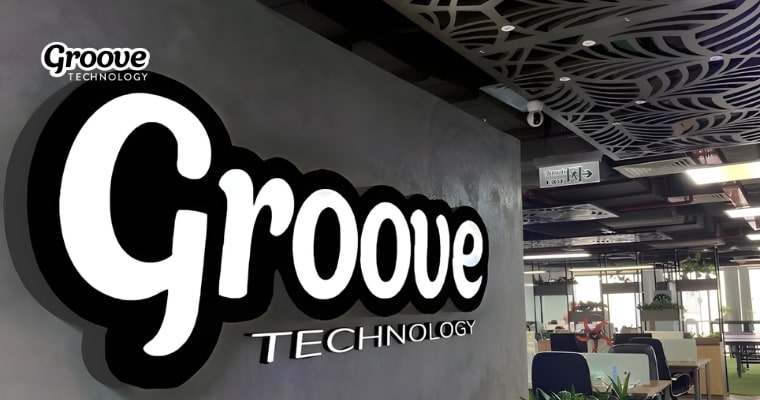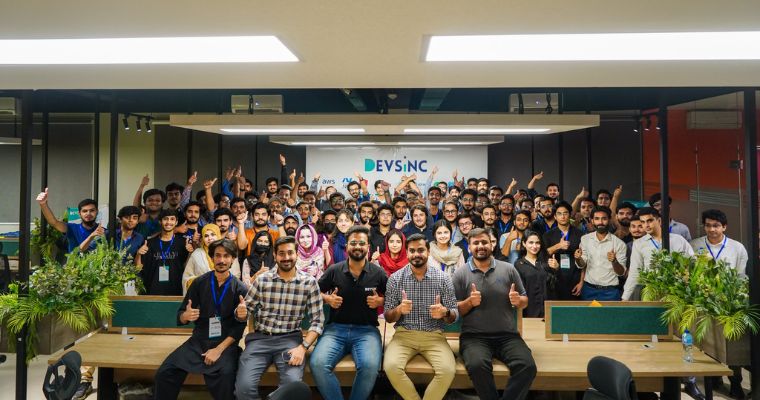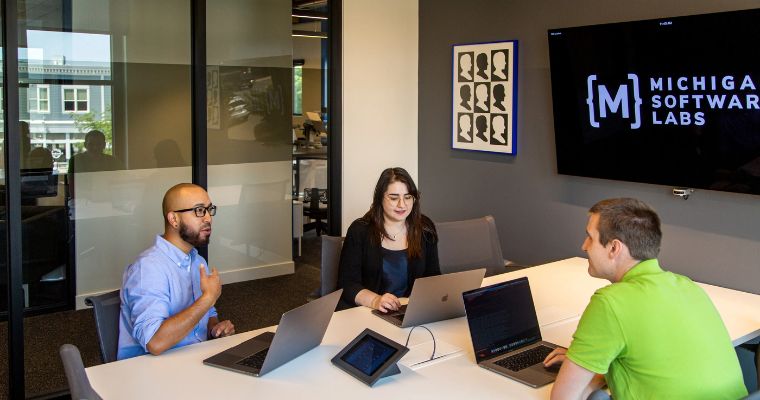What is Mobile App Software Development Outsourcing?
Mobile app software development outsourcing represents a strategic business model where companies delegate application development projects to external service providers instead of building internal teams. Organizations partner with specialized development firms to handle the design, programming, and maintenance of mobile applications, while focusing their internal resources on core business activities. Companies reduce development expenses by 20% to 70% through outsourcing partnerships, eliminating costs associated with recruitment, training, infrastructure, and employee benefits.
This comprehensive guide examines fundamental concepts of outsourced mobile software development, explores various partnership models, and provides actionable strategies for successful implementation. Readers will discover how to evaluate outsourcing options, compare external partnerships with internal development approaches, and establish effective collaboration frameworks. Business leaders gain valuable insights into cost optimization strategies, risk mitigation techniques, and quality assurance protocols that transform workforce management into a dynamic, responsive capability.

1. What is mobile app software development outsourcing?
Mobile app development outsourcing is a strategic business practice where organizations delegate the design, development, and maintenance of mobile applications to external vendors or dedicated remote teams. Instead of building everything in-house, companies collaborate with specialized software partners who bring deep technical expertise, established workflows, and experience across multiple industries.
This model empowers both tech-driven and traditional enterprises to accelerate innovation, reduce operational costs, and bring products to market faster without the heavy investments required to expand internal teams or infrastructure. It’s particularly valuable for businesses that want to stay agile in fast-changing markets while focusing on their core competencies such as product strategy, marketing, or customer experience.
Developing a high-quality mobile app requires years of focused expertise. According to Malcolm Gladwell’s 10,000-hour rule, it takes roughly 2.6 years of intensive full-time practice to master a specialized skill such as mobile app development (NLM, 2009). For most organizations, cultivating such proficiency internally would demand substantial time, cost, and resources, often delaying time-to-market and diverting attention from strategic priorities. That’s why outsourcing has become a proven accelerator for digital transformation.
2. Why should your company choose mobile app software development outsourcing?
Organizations discover ten compelling outsourcing software development benefits when partnering with external development teams for mobile application projects:
- Cost Efficiency: External development partnerships reduce expenses by 20% to 70% compared to internal teams, with average US developer salaries reaching $80,000 annually, versus Armenian outsourcing rates of $30 – $40 per hour.
- Access to Top Experts: Global talent pools offer specialized professionals, including AI and augmented reality developers, without geographic limitations, providing access to niche expertise that may be unavailable locally.
- Broad Skillset: Development agencies assemble a diverse team of specialists, including project managers, business analysts, software engineers, and quality assurance professionals, thereby accelerating delivery through role-specific competencies and collaborative workflows.
- Quicker Development Process: Professional vendors deliver accurate timeline estimates, efficient resource allocation, and streamlined progression from conceptual ideas to market-ready products through established development frameworks.
- Flexibility: Agile methodologies, including Scrum and Kanban, enable mid-process adjustments through structured sprints, delivering functional features incrementally while adapting to changing business requirements.
- Scalability: Development companies can rapidly expand their teams from five to fifteen developers without disrupting project timelines, accommodating complex requirements and urgent delivery schedules through flexible resource allocation.
- Better Business Focus: Delegating development responsibilities to agencies with dedicated project managers frees internal resources for core activities, including investment acquisition, strategic partnerships, and market expansion initiatives.
- Risk Reduction: External firms manage operational risks, including developer turnover and technical implementation challenges, with experienced project managers handling issue identification and mitigation strategies.
- All-sided Business Support: Development partners provide complementary services, including marketing consultation, market research analysis, and business strategy development to maximize post-launch project success and market penetration.
- Security: Professional outsourcing firms maintain compliance with local regulations and data protection standards, utilizing secure platforms such as GitLab, Confluence, and Google Drive, alongside comprehensive non-disclosure agreements (NDAs).

3. Key models of outsourced mobile software development
Businesses pursuing mobile application development partnerships typically select from three distinct outsourcing models: onshore, nearshore, and offshore arrangements. Each model presents unique strategic advantages and operational considerations influenced by geographic proximity, cost structures, communication dynamics, and talent accessibility. Organizations must evaluate these factors against project requirements and business objectives to determine optimal partnership configurations.
- Onshore Outsourcing involves partnering with development teams within the same country. This model ensures smooth communication, shared cultural understanding, and easier collaboration, though it typically comes at a higher cost.
- Nearshore Outsourcing connects businesses with teams in nearby or neighboring countries. It strikes a balance between cost savings and operational convenience, offering overlapping time zones and cultural familiarity that streamline teamwork.
- Offshore Outsourcing means engaging teams located in distant regions, often across continents. This model delivers the greatest cost advantages and access to a vast global talent pool, but it also requires careful management of time zone differences and communication workflows to maintain efficiency.
| Model | Location | Cost | Time Zone Alignment | Communication & Culture | Talent Pool | Best For |
| Onshore | Same country | Highest | Excellent | Excellent | Limited | Projects requiring intensive collaboration |
| Nearshore | Adjacent countries | Moderate | Good | Good | Broader | Balanced cost-efficiency partnerships |
| Offshore | Distant continents | Lowest | Challenging | Variable | Global | Cost optimization and scalability |
>>> See more: Top Types of Outsourcing You Need to Know
4. What are the crucial factors to consider in mobile app software development outsourcing?
Organizations must evaluate eight strategic factors when selecting external development partners to maximize project success and minimize operational risks.
- Team Quality and Expertise: Partner selection requires evaluating niche-specific experience, portfolio strength, industry recognition, structured project management capabilities, and proficiency in relevant programming languages, frameworks, and emerging technological trends.
- Effective Communication: Productive partnerships rely on open communication channels, dedicated project managers, regular progress updates through daily or weekly reporting, and collaborative tools such as Coda, Slack, Trello, or Asana.
- Collaborative Efficiency: High-performing teams foster cohesive collaboration through clear role assignments, constructive feedback mechanisms, and proactive issue identification systems that prevent project delays while maintaining development momentum and quality standards.
- Robust IT Infrastructure: Technical evaluations must assess hardware capabilities, software systems, network reliability, and database architecture strength to guarantee stable development environments that support complex application requirements without system failures.
- Data Security Protocols: Security verification encompasses data encryption standards, firewall configurations, intrusion detection systems, and compliance with ISO, SOC, and HIPAA regulations, considering the average breach costs of $3.86 million (Ponemon Institute & IBM, 2020).
- Intellectual Property Protection: Partnership agreements must confirm comprehensive measures protecting intellectual property and customer data, as 80% of breaches involve customer information and 32% compromise intellectual property (Ponemon Institute, 2020).
- Budget Maximization: Cost-effective partnerships prioritize efficient feature development while balancing quality requirements and budget constraints, recommending solutions that align with strategic business objectives and financial parameters.
- App Maintenance and Support: Post-launch support includes transparent maintenance processes and rapid response protocols for technical issues, considering that 52% of users uninstall applications after experiencing performance problems.

5. How to approach mobile app software development outsourcing effectively?
Strategic outsourced mobile software development follows four methodical steps that transform conceptual ideas into market-ready products through systematic partner selection and collaborative project management:
- Define Project Scope: Organizations must specify core application features, technology stack requirements, delivery deadlines, milestone markers, and budget parameters to establish clear project boundaries and expectations for potential development partners.
- Source Candidates: Partner identification involves leveraging professional platforms, including LinkedIn, Upwork, and Toptal, as well as exploring specialized agencies such as development firms that demonstrate proven mobile application expertise and industry experience.
- Evaluate Candidates: A comprehensive assessment examines technical experience, portfolio quality, mobile application specialization, cost structures, client testimonials, and proficiency with open-source development tools to determine optimal partnership alignment and capability matching.
- Plan and Collaborate: Project execution requires the creation of a detailed roadmap with milestone definitions, resource onboarding procedures, and sustained communication protocols that facilitate progress monitoring, issue resolution, and collaborative problem-solving throughout the development phases, illustrating how to outsource software development effectively.

6. Mobile app software development outsourcing vs. An in-house team: Which is better?
Strategic development approaches necessitate a careful evaluation of organizational needs, project complexity, and resource availability, rather than relying on universal solutions. Outsourcing delivers accelerated timelines, cost optimization, and access to global expertise, while introducing communication challenges and reduced direct oversight. In-house development offers comprehensive control, seamless alignment, and enhanced security protocols, albeit at the cost of higher investment and extended scalability timelines.
- Choose Outsourcing: Organizations benefit from external partnerships when prioritizing cost reduction, accessing specialized technical skills rapidly, maintaining flexible team scaling, or launching applications quickly without permanent staff expansion commitments.
- Choose In-house Development: Internal teams serve organizations where applications represent core business functions, require tight integration with existing systems, demand strict confidentiality protocols, or necessitate complete control and long-term ownership strategies.
When evaluating inhouse vs outsourcing software development, modern organizations increasingly adopt blended strategies, outsourcing initial development phases while building internal teams for ongoing maintenance, feature evolution, and strategic application management to optimize both immediate delivery and long-term sustainability.
| Factor | Outsourcing | In-House Team |
| Cost | Lower investment, project-based payments | Higher overhead, ongoing salaries, and benefits |
| Talent Access | Global expertise, specialized professionals | Local talent limitations, geographic constraints |
| Time to Market | Accelerated delivery, continuous development | Extended timelines, internal resource dependencies |
| Control | Contract-managed oversight, limited direct supervision | Complete authority, immediate decision-making |
| Communication | Potential barriers, structured protocols | Direct interaction, immediate feedback loops |
| Scalability | Flexible team adjustment, rapid scaling | Difficult expansion, slow recruitment processes |
| Security | Partner-dependent protocols, external risks | Internal governance, controlled access systems |
| Brand Alignment | Requires strategic coordination efforts | Natural cultural integration, inherent understanding |
7. 5 Best mobile app development outsourcing companies
Groove Technology, IT Craft, Devsinc, Michigan Software Labs, and EB Pearls stand among the most trusted outsourced mobile software development companies. Each delivers skilled developers, proven workflows, and a commitment to building applications that meet complex project needs on time. Continue to explore each company’s background, strengths, and project portfolio to understand how to choose a software outsourcing company and find the most suitable partner for your goals.
Groove Technology
Groove Technology was founded in 2016 as an Australian software outsourcing company with main operations based in Vietnam. The company builds high-performance software teams for clients across Australia, Asia, and Europe, focusing on long-term partnerships that drive measurable growth. With a 97% client retention rate and 93% employee retention rate, Groove Technology maintains consistent project quality and stability through experienced professionals. Its approach combines transparency in pricing, scalable service models, and a strong commitment to continuous talent development and quality assurance.
- Services & expertise: Custom iOS & Android App Development, Cross-Platform App Development, UI/UX Design, AI-Powered Features & Automation, API Integration and Backend Development, Performance Optimization, Testing and Quality Assurance, Maintenance and Support.
- Tech stack: React Native, Vue.js, JavaScript, Vuex, Vue Router, Java, Node.js, Python, Spring Boot, Express.js, MySQL, MongoDB, AWS, Microsoft Azure, Docker, Kubernetes, and more.
- Industries: healthcare, education, logistics, finance, manufacturing, ecommerce, and business services.
- Team size: 230+ experienced experts working across multiple regions.

IT Craft
IT Craft is a leading mobile app development company that delivers comprehensive, full-cycle services for businesses of all scales. Its engineers handle projects from scratch, continue existing ones, or modernize legacy systems, focusing on quality and timely delivery. With expertise in native, cross-platform, and PWA development, the company helps clients save costs while maintaining performance and scalability.
- Services & expertise: custom mobile app development, native app development, cross-platform & hybrid app development, wearables development, TV app development, IT consulting, product discovery, maintenance & optimization.
- Tech stack: Swift, Kotlin, React Native, Flutter, TypeScript, Ionic, C#, .NET MAUI, .NET Core, Django, Node.js, Laravel, Kubernetes, AWS, Azure, Google Cloud, Claude, OpenAI.
- Industries: healthcare, education, logistics, finance, manufacturing, ecommerce, and business services.
- Team size: 250+ experienced experts providing flexible support worldwide.
- Clients: Pecan, MyCarrier, Legal Beagle, 99coaches, Limpid Markets, Boarding Path, and Flex Health.

Devsinc
Devsinc applies mobile technologies to solve complex business challenges through flexible and cost-effective development models. The company helps organizations stay competitive by building mobile-first architectures, developing secure enterprise apps, and integrating third-party APIs with precision. Its engineers focus on performance, security, and speed while maintaining clear communication and quick response times that clients highly value.
- Services & expertise: mobile app development, digital transformation, staff augmentation, business application, game development, mobile testing, AR/VR development.
- Tech stack: Swift, Kotlin, React Native, Flutter, Unity, Unreal Engine, Appium, Node.js, Ruby on Rails, Spring, C++, C#, Python, JavaScript, ARKit, ARCore, Azure, Google Cloud Platform.
- Industries: ads & marketing, software, finance, fitness & wellness, food, and logistics.
- Team size: 2000+ skilled professionals working across global projects.
- Clients: HoneyBricks, Intellirent, XQuic, MoveCoins, FreshBooks, and AI.

Michigan Software Labs
Michigan Software Labs focuses on mobile app development that supports the entire product lifecycle. The team manages everything, from initial strategy and interface design to native and hybrid development, as well as DevOps. They also handle app store optimization and analytics. Their flexible process and local presence make project coordination smoother and faster, keeping clients involved in every stage.
- Services & expertise: native and cross-platform mobile app development, product engineering, UX design, cloud and systems integration, mobile app security, IoT development, and app store optimization.
- Tech stack: Kotlin, Java, Swift, Objective-C, Flutter, React Native, Angular, Vue, Python, Node.js, AWS.
- Industries: healthcare, education, recycling, automotive, energy, finance, and manufacturing.
- Team size: 35+ experts.
- Clients: Orb Aerospace, Ambs, Rutgers University, ATBS, Smart Water Technologies.

EB Pearls
EB Pearls is an award-winning company recognized for delivering reliable mobile app development across multiple platforms and devices. The team builds applications for smartphones, tablets, wearables, TVs, and IoT systems, while offering services that cover everything from design and full app creation to updates and bug fixing. The developers take an active role in project execution, constantly suggesting improvements to deliver better outcomes for clients.
- Services & expertise: native mobile app development, progressive web app development, hybrid apps, ecommerce development, UI/UX design, website development.
- Tech stack: Swift, Kotlin, Java, Flutter, React, React Native, Vue, TypeScript, .NET, Express.js, WordPress, Shopify, GraphQL, Docker, AWS.
- Industries: banking, information technology, ecotech, retail, finance, real estate.
- Team size: 400+ experts.
- Clients: Rocket Remit, FlipPay, Prologis, SaucedIt, QuoteUp.

FAQ
How much does it cost to hire someone to build a mobile app?
The outsource software development cost can vary significantly depending on the partnership model and expertise level. Freelance developers typically charge $25 to $49 per hour, while professional agencies and outsourcing companies command $50 to $250 or more per hour, reflecting specialized capabilities and comprehensive service offerings.
How to find the best outsourcing company for mobile app development?
Strategic partner selection requires five steps of systematic evaluation across multiple criteria to identify optimal development partnerships:
- Step 1: Determine your mobile app development requirements.
- Step 2: Search for mobile app development companies.
- Step 3: Consider the budget and value for money.
- Step 4: Analyze the company’s reputation and client feedback.
- Step 5: Evaluate portfolios, skills, and specializations.
How much does it cost to build a mobile app in Australia?
Australian mobile application development costs depend on complexity levels and feature requirements, as illustrated in the following investment framework:
| App Type | Estimated Cost (AUD) | Development Time |
| Simple App | $30,000 – $80,000 | 1 – 2 months |
| Medium Complexity | $80,000 – $150,000 | 2 – 4 months |
| Complex App (AI, AR/VR) | $200,000+ | 6+ months |
Source: https://appinventiv.com/
Conclusion
This comprehensive guide examines the fundamentals of mobile app software development outsourcing, including partnership models and strategic implementation frameworks, to address critical business decision-making needs. These insights enable organizations to make informed decisions about development partnerships, taking into account the cost implications, risk factors, and operational considerations.
Groove Technology delivers specialized mobile application development services through proven outsourcing methodologies and expert technical teams. Our comprehensive approach combines cost optimization with quality assurance, enabling businesses to accelerate digital transformation initiatives while maintaining strategic focus on core operations.
Related Articles:
- A Detailed Guide to Hiring a Dedicated Mobile App Developer
- A Complete Guide to Choosing the Right Outsourced Software Company
- Discover the Top 15 Software Outsourcing Companies Vietnam





